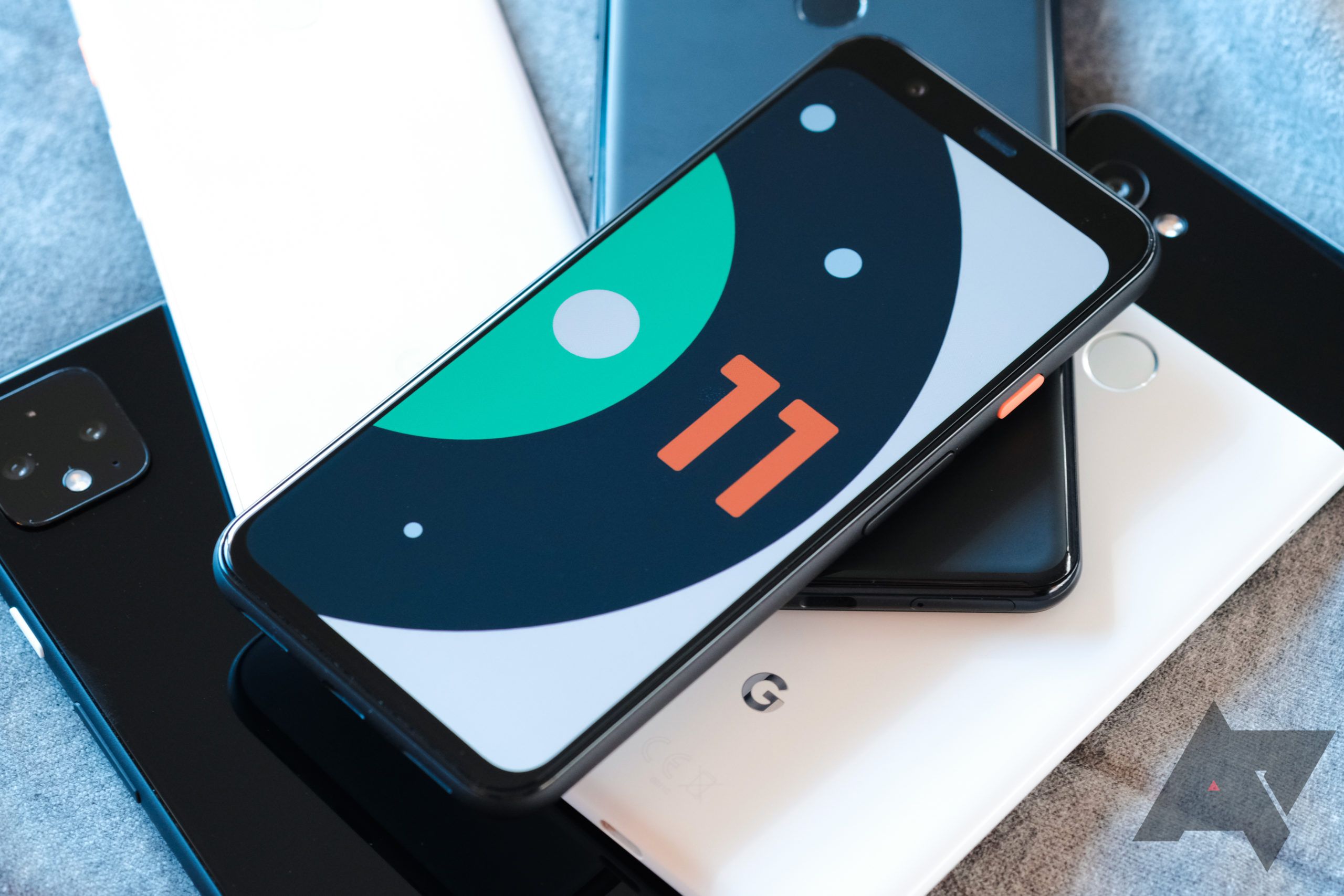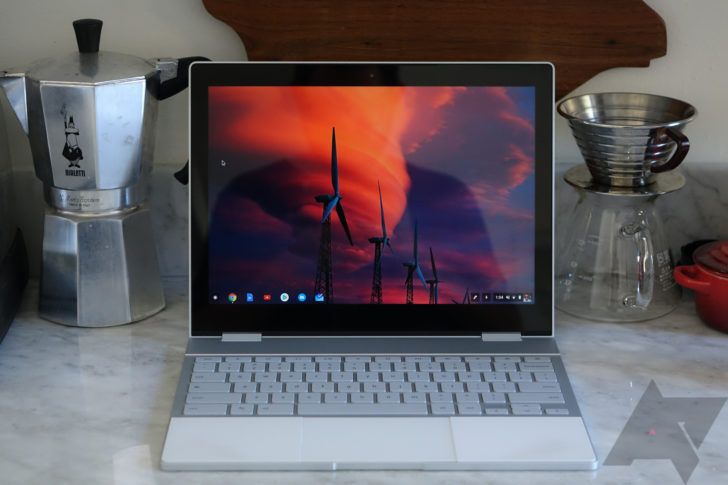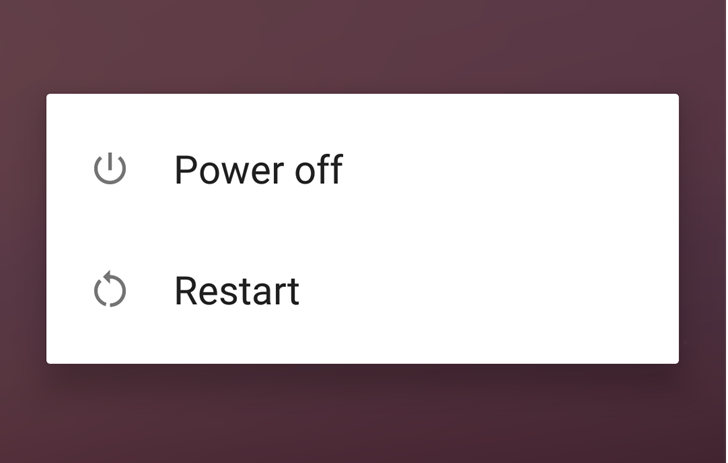latest

Android 11 developer preview 1 adds support for soft reboots
You won't use it directly, but it could pave the way for some great features
Major Android updates always come with a host of new features and functionality, but there are countless other changes taking place behind the scenes that set the stage for more significant improvements down the road. Among the additions in Android 11, most of us will probably never care about rebooting userspace, but it may be a first step for several other bigger enhancements to come.

Being able to run Linux applications on Chromebooks isn't just useful for developers, it can help plug what little remaining app or feature gap prevents you from using the platform. Unfortunately for those that do use it, some folks have been experiencing a problem where their devices spontaneously reboot during sleep if Linux containers are running, and it isn't clear if it will be fixed in time for the next Chrome OS release.

We were recently tipped off that some OnePlus 7 Pro owners are running into a significant but thankfully not widespread issue: Their phones appear to randomly turn off or shut down, potentially while they're even being used. The only means of resuscitation in such cases is manually rebooting into fastboot by holding down a combination of hardware buttons. Thankfully, OnePlus is both aware of the issue and planning a fix.

The Google Pixelbook is a pretty fantastic laptop, but every tech product has a few bugs. Recently, some owners have been reporting a nasty reboot bug, where the Pixelbook will randomly restart while in use. The frequency varies from report to report, with one even saying it occurred every 1-10 minutes. Yikes.

If you've been having trouble with your Netgear Orbi mesh network, and you have a Pixel or Pixel 2, then your phone might be to blame. Or, at least, the software on it. There are many reports of spontaneous access point reboots, crashes, and intermittent connection issues for those using mesh network access points with devices running Android Oreo.

Niantic might be most well-known now for Pokémon Go, but that title was actually the company's sophomore entry into the world of AR games. Its first was a sci-fi effort called Ingress, and it came out all the way back in 2012. Ingress never quite reached the popularity of its Pokémon-based successor, but there is still a passionate community surrounding it. Yesterday Niantic announced a "reboot" coming in 2018 for the title, to be called Ingress Prime.

Some Pixel C owners have had a rough time with Google's flagship tablet. Problems first started appearing last month, when the scheduled over-the-air update for May (plus some Android N preview builds that had already been available) started causing semi-random reboots, usually when the tablet had gone into its low-power mode running on battery. The June update failed to fix the problem, as did the fourth version of the Android N developer preview.

Read update
- The June OTA MXC89H from today does not fix the reboots. Neither does updating to N Developer Preview 3. If you are afflicted, your only chance at a stable OS is either rolling back to the April build or requesting a replacement from Google and praying that it wouldn't be affected by the reboot bug, whatever it may be:
Google's commitment to Android in the form of monthly updates for its own branded hardware is pretty great... until it's not. That's the case with the May security and stability update for the top-of-the-line Pixel C tablet, which has created some serious headaches for owners. Some (but by no means all) owners of the Pixel C are reporting more or less random reboots of the tablet, usually occurring every five to thirty minutes when the Pixel C is off its charger.

Google has steadfastly refused to add a reboot option to the power menu in stock Android over the years. In fact, it removed everything other than "power off" from that menu in Lollipop. Users have been asking for a reboot option forever, and now Sony is asking for it too. Sony has opened a bug tracker issue and submitted a patch to add it, but Google does not appear to be biting.

One of the tools any good flashaholic should be familiar with is fastboot. Like ADB, the help screen for fastboot received some changes with the preview release of Android M. The reboot command now offers a friendlier syntax to reach the bootloader, and there is a new set of "flashing" commands designed to prevent write operations from occurring when they aren't desired. There's also a fix for the "missing system.img" error that some people experienced after trying to use the flash-all script to install factory images.

Before Android 5.0, the Android power menu (reached by pressing and holding the physical power button) included options for an airplane mode and setting the ringer to on, vibrate, or silent. And that was just the AOSP implementation: some manufacturer skins, custom ROMs, and root tools added extras like a screenshot button, a reboot menu, and other goodies. But with Android 5.0, we get... this.

If your Samsung Galaxy S4 on Verizon has been randomly rebooting, you might want to check for a system update. No, it's not getting Lollipop, but Verizon says that this update does fix "the intermittent power cycle issue." Translation: before this update the phone crashed. Now it will not crash. We hope. The only other change for software version KOT49H.I545VRUFNK1 (PDF link) is a VPN connectivity fix.

Last week, after Google Maps received a public transit-minded update, it became apparent that the app wasn't playing nice with the HTC Rezound. Befuddled user reports spilled in, relaying tales of inexplicable reboots and crashes. As always, the community found a solution but, unfortunately, the only solution ended up being the "uninstall updates" button.

Latest Google Maps Update (v6.10) Causes The HTC Rezound To Reboot, Leaves Users Finding Their Own Way Home
Google Maps received an update yesterday, making it a lot more friendly for users who rely on public transport to get from A to B by adding departure
Google Maps received an update yesterday, making it a lot more friendly for users who rely on public transport to get from A to B by adding departure times for railway stations, among other new features.

There comes a time in every action hero's life where he gets tired of the explosions and the fighting and race horses duct taped to SCUD missiles, and longs for a simple life. Camping and going on road trips with the family, getting a nice office job, sending your daughter off to get kidnapped in Paris. Verizon's Droid Does campaign has hit a similar milestone. After very successfully selling a metric ton of Android devices with harsh, scary looking robot arms and not to mention evil, horror-esque iPhone taunts, the ad campaign is going for a less threatening and more heart-warming approach.

Yesterday, Nvidia's CEO announced that the Ice Cream Sandwich (that's Android 4.0 for those of you new to the game) update for the quad-core Asus Transformer Prime would begin rolling out immediately. Sure enough, users started receiving the update, and we managed to snag and host the OTA ourselves (as well as help you prevent it from breaking root). For most, the update brought everything you'd expect from the hot new version of Android: even smoother, snappier performance, sleeker transitions, and various other perks. But for some, it appears that the update has seriously screwed up their device.

Would you look at that - only hours after we leaked the long overdue update that, most importantly, fixes reboot issues, Verizon opened the flood gates and is now pushing the 74MB download over-the-air to HTC Thunderbolts all over the country.













